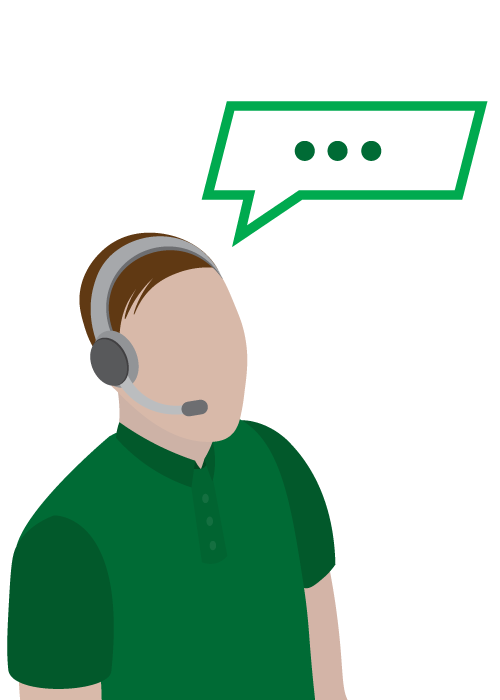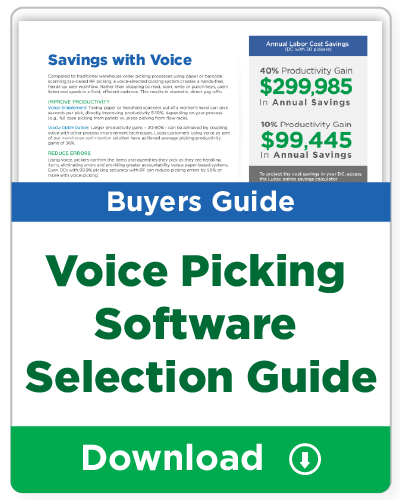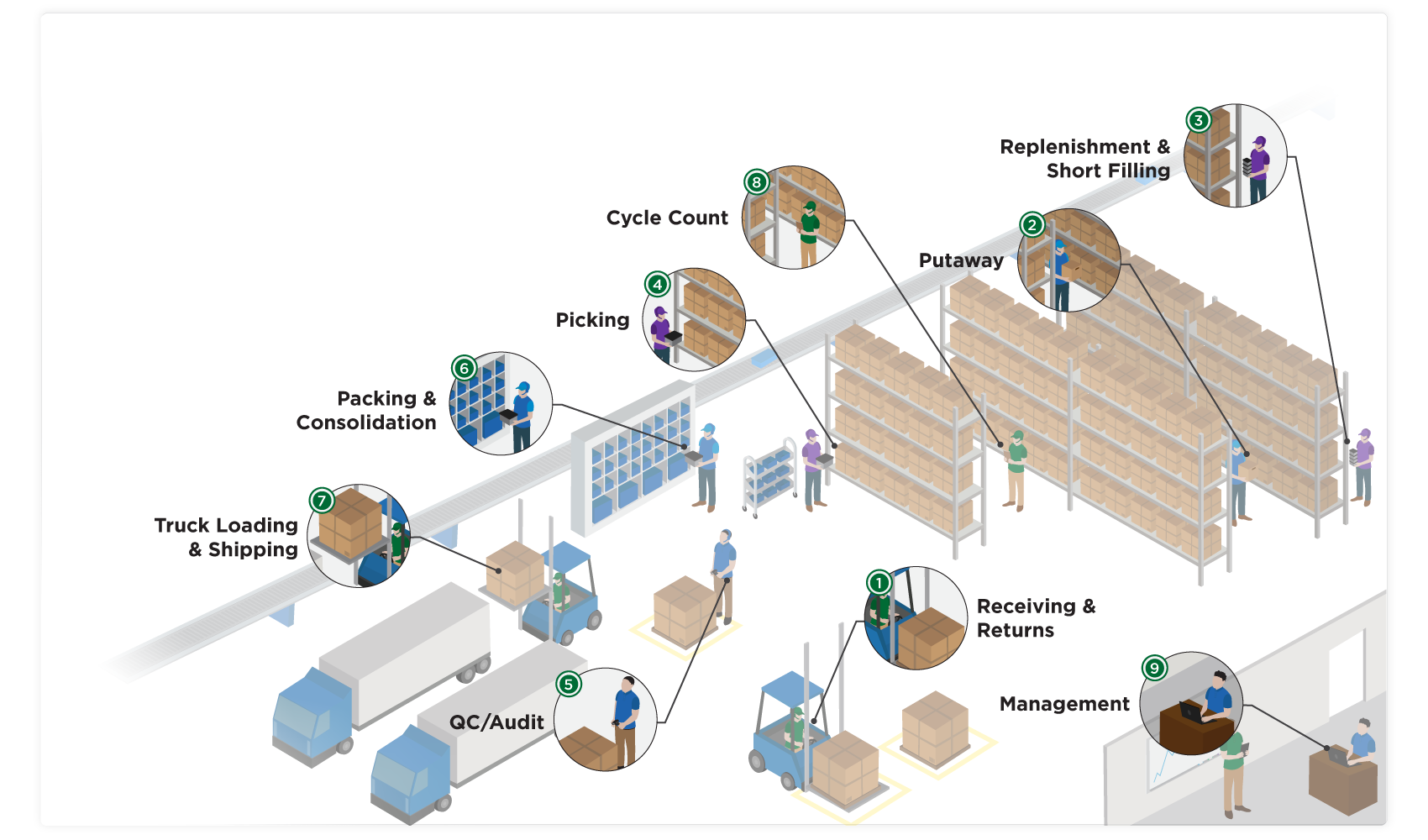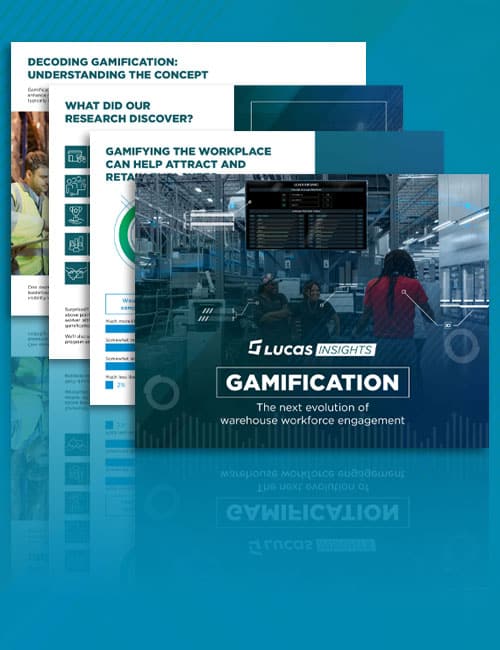Jennifer™ voice helps you get the right products out the door, faster, with less people.
Since 1998, Jennifer™ voice has been making work easier, faster and safer for tens of thousands of warehouse workers on five continents.
Get a Demo

Jennifer™ is the smartest voice-directed warehousing solution
Jennifer™ transforms end-to-end warehouse tasks for hundreds of warehouses by combining voice, vision, scanning and AI-based optimization.
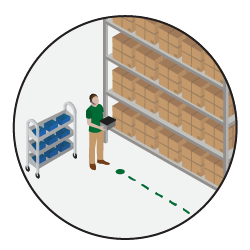
Increase Productivity 36% →
Maximize the productivity of your warehouse workers with process optimization and adaptive voice-directed workflows.
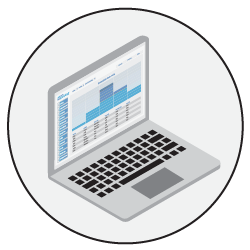
Improve Manager Visibility →
Provide your warehouse managers with real-time visibility and control of operations so that they can increase throughput and manage peaks.
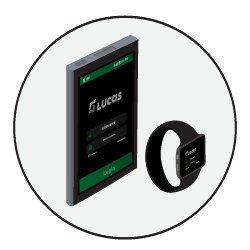
Increase Employee Efficiency →
Make work easier and faster for your warehouse associates with easy to use multi-modal mobile applications built for standard mobile computers.
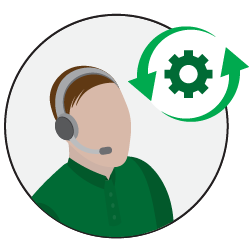
Reduce Training Time 90% →
Reduce training and onboarding with dual speech recognition technology and voice applications that require no voice training.

Improve Employee Safety →
Improve worker safety and ergonomics by enabling workers to be eyes and hands free, making them more aware of their surroundings.
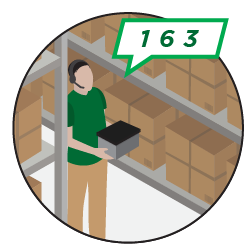
Increase Accuracy to 99.99% →
Achieve 99.99% accuracy rates with variable check strings, quantity validations, countdowns and Jennifer’s assistance.
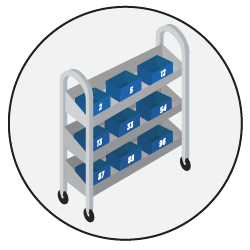
Reduce Travel 30-70% →
Reduce travel 30-70% with AI-based travel optimization combining intelligent batch picking and path optimization.
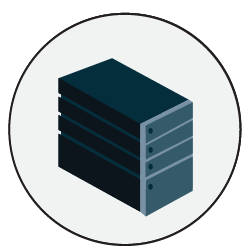
Extend Current Systems →
Reuse and extend your current systems with smart software and standards-based interfaces (making integration quick and effective).
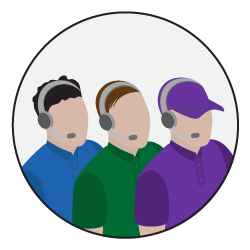
Increase Throughput 33% →
Increase throughput and reduce turnaround times by efficiently allocating workers and equipment with a “waveless” order release.
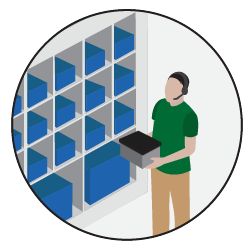
Increase Flexibility →
Increase flexibility with configurable voice-directed workflows (e.g. voice-directed put walls for order consolidation).
Jennifer™ provides real results for distributors in every industry
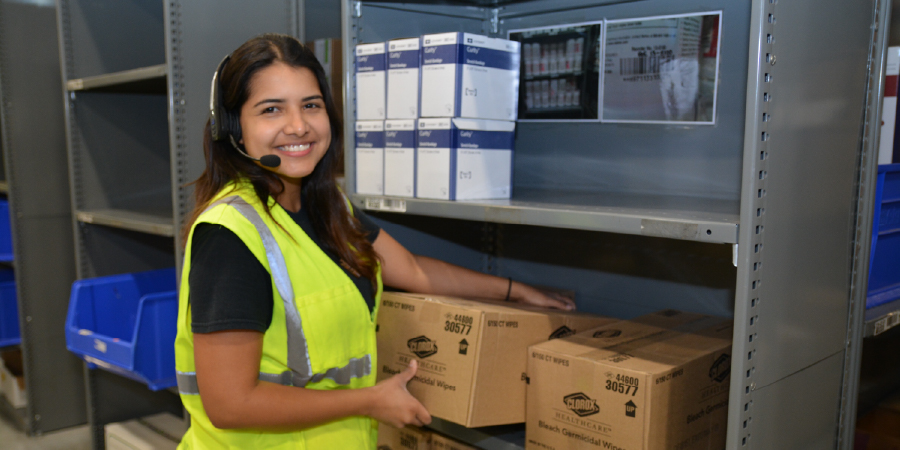
Jennifer helped Baptist Health, a leading healthcare provider, double picking productivity.“The previous average picking rate in the LUM area was 50-56 lines per hour (LPH). Today it is 100-110. That is a 100% improvement, and in bulk picking, the number is about 20 percent.”
-Dale Adamson, AVP of Logistics and Distribution
Download Case Study
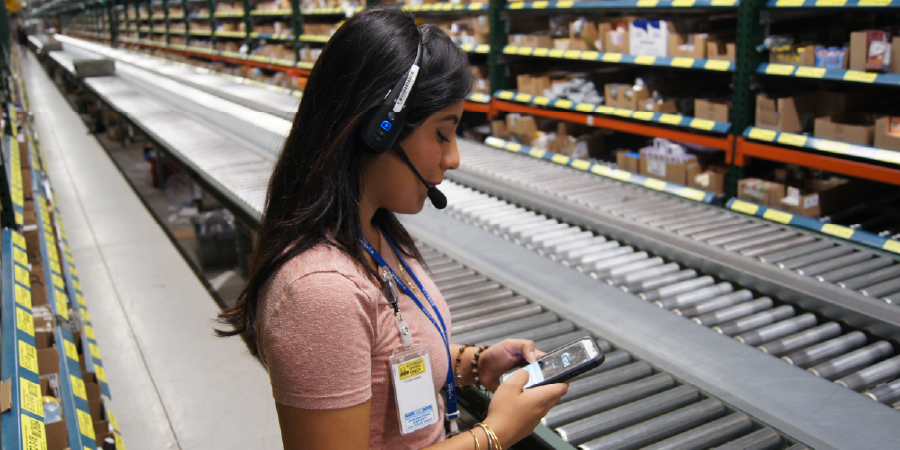
Jennifer helped Apex Tool Group, a leading manufacturer of hand and power tools, operate with 10% fewer man hours.“You rarely implement a new system and have users tell you ‘It’s made my life so much easier!’ Making the processes better for associates makes them more productive. And that’s better for the business.”
-Chris Rufa, Senior Director of Global Distribution
Download Case Study
Get started with these helpful resources
Check out our knowledge center
Frequently asked questions
How does voice directed warehousing work?
Jennifer™ uses information from any ERP or WMS system to create a fluid, voice directed process for warehouse associates, verbally directing them where to go and what to do. Associates communicate with Jennifer™ through a headset and a voice-enabled Android device that ensures they work as efficiently, safely and accurately as possible.
Every interaction between the picker and the voice application are tracked so managers can be provided with a management console to view the progress of orders as they are picked.
For a step-by-step walkthrough, read our “Introduction to voice picking”.
What warehouse processes can be directed with voice?
Jennifer™ voice adapts and optimizes end-to-end warehouse tasks –picking, receiving, putaway, sortation, loading, audit, replenishment, cycle count, returns, and more. Jennifer incorporates complementary technologies like barcode scanning, smart glasses and RFID to help automate any manual, hands-on process in your warehouse.
What are the benefits of voice directed warehousing?
Compared to traditional warehouse order picking processes using paper or barcode scanning, a voice directed warehousing system creates a hands-free, heads-up user workflow. Rather than stopping to read, scan, write or punch keys, users listen and speak in a fluid, efficient cadence. This results in dramatic, direct pay-offs:
1) Improve Productivity:
Depending on your process (e.g., full case picking from pallets vs. piece picking from flow racks), productivity gains may range from 10-90%. Lucas customers have achieved average picking productivity gains of 36%.
2) Reduce Errors:
Even DCs with 99.9% picking accuracy before voice can reduce picking errors by 25% or more with voice picking.
3) Ensure Safety:
Because operators are eyes and hands free, they are more aware of surroundings. Operations that add voice solutions often see a decrease in accidents.
4) Decrease Training Time:
Voice directed processes are more intuitive for users. Most Lucas customers find that a new associate can be trained and begin going solo in less than a day, and become proficient in one to two weeks.
How does voice compare to RF?
Companies that move from barcode scanning to voice directed warheousing typically see improvements both in productivity and accuracy, due to the inherent advantages of a hands-free, heads-up process:
1) Heads-Up Improves Accuracy and Safety. – With voice, users never have to look down at a terminal screen to get information.
2) Two Hands Free Is More Productive – Voice users never have to juggle a scanner while trying to grab and move items, so they can grab, lift and move items more efficiently.
3) Ease of Use and Training Training time may increase when moving from paper to RF due to the need to educate workers on how to use an unfamiliar piece of equipment, in addition to learning the details of the job.
4) Voice Plus Flexibility – We offer the ability to configure a voice-directed process to combine speech recognition and scanning, where it makes sense.
Looking to see how voice directed warehousing compares to other technologies (pick-to-light, automation, etc.) read our recent post, “How Voice Compares”.
Can your voice solutions integrate with my current system(s)?
The short answer, yes. System integration is a vital part of any software implementation. Although integration can be complex, the Lucas standards-based system interfaces makes the process quick and effective.
The Lucas software is designed to easily integrate to virtually any on-premise, hosted, or cloud-based IT or automation system: ERP, order management, and warehouse management packages (SAP, Oracle, BlueYonder, Manhattan, Infor, Microsoft, etc.); custom-developed host systems; warehouse control systems; and other automation and IT systems used in the DC.
Do you provide reporting and analytics dashboards for managers?
Yes! The Lucas management console gives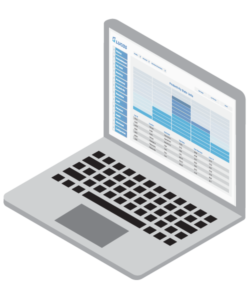
Are different languages or accents an issue with voice solutions?
The short answer, no. Jennifer™ speaks in 30+ languages and ensures optimal recognition even for users with non-standard accents or non-standard speech patterns. Jennifer™ incorporates speech recognition technology that utilizes multiple simultaneous recognition strategies (phonetic and word-based).
What hardware can be used with voice directed applications?
Lucas voice directed mobile applications run on a wide variety of Lucas certified devices. In 2014, We introduced voice applications that can run on Windows or Android devices, including smartphones and industrial devices. All major hardware manufacturers (Zebra, Honeywell, Datalogic) are moving to Android in their new devices, in part because Microsoft is ending support for Windows Mobile. All of these newer devices can use wireless Bluetooth headsets.
Voice-capable hardware devices include but are not limited to:
• Handheld and wearable RF devices
• Vehicle mounted devices
• Tablets
• Smartphones
• Smartwatches
• Smart glasses
Read our “Buyer’s Guide for Mobile Computers” to learn which devices you should use.
Is voice training required?
While traditional speaker-dependent systems require 20-30 minute voice training sessions, Lucas speech recognition requires no user training. (While people use Lucas without training, the system is not speaker-independent.)
How long does it take to get a new associate performant?
Most Lucas customers find that a new associate can be trained and begin going solo in less than a day, and become proficient in one to two weeks.
What are the typical cost savings with a voice solution?

What’s different about Lucas voice solutions?
We are the pioneers in voice technology for warehouses and DCs and occupy a lot of firsts. Our voice directed warehousing solutions incorporate hundreds of thousands of person-years of user experience. And since our founding in 1998, we’ve had a track record of innovation in voice and AI technology.
1) In 1998, we introduced hardware independent voice-directed applications featuring Jennifer™.
2) Introduced voice-directed bucket brigade picking in 2003.
3) First company to deploy voice-directed solutions on multi-modal mobile devices in 2005, allowing the seamless combination of voice, scanning and screens.
4) Introduced a variable check string validation in 2008.
5) First to adopt Android in 2014 – a full five years ahead of traditional voice providers.
6) Only dual speech engine technology available on the market that interprets associates spoken responses, in multiple languages, regardless of accents and background noise.
7) Introduced AI-based smart batching and pick path optimization in 2017.
8) In 2020, we became the first company to deploy voice applications on smartwatches.
9) Introduced machine learning based tools for dynamic slotting and predictive workforce planning in 2021.
